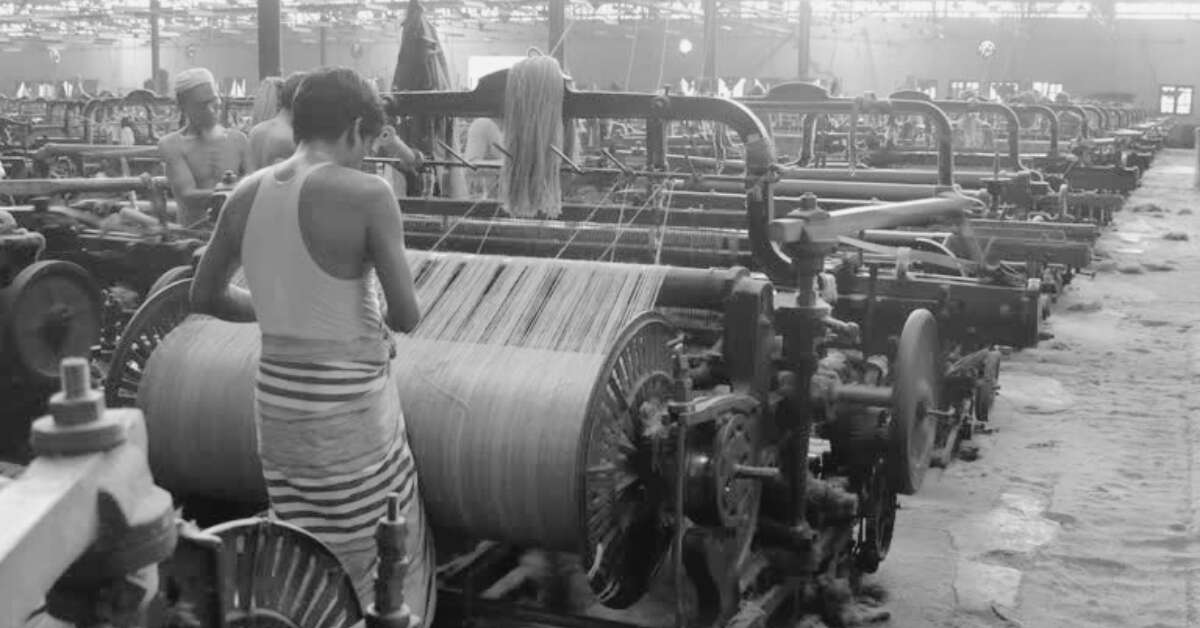

Did you know that Visakhapatnam was once home to the first jute mill in the Madras Presidency? The Chittivalasa Jute Mill, established in 1867, stood as a progressive industrial venture that encouraged trade, employment, and economic growth in the region for decades. Yet, today, this once-thriving mill stands silent, leaving behind only its story.
Bheemili, a coastal town near Visakhapatnam, was initially a Dutch settlement before coming under British control in 1825. By the mid-19th century, after the Dutch handed it over to the charge of the British East India Company, it was in a considerable state of decay. Then, British firm Arbuthnot & Co., recognizing the potential of local agriculture, first established a factory at Chittivalasa to process sugarcane into jaggery. But in 1867, they pivoted to jute, converting the factory into a steam-powered mill—laying the foundation for the jute industry in South India.
This was no ordinary enterprise. Chittivalasa Jute Mill quickly became a landmark in Vizag. As of 1907, the mill was producing 26 lakh gunny bags annually with 98 looms and over 2,000 spindles. It was a hub of economic activity, employing 800 workers and exporting high-quality jute products, including gunny bags, to markets in Europe, where its “erra gógu” hemp (Hibiscus Cannabinus or ‘the Deccan hemp’) rivaled even the famed Calcutta jute.
For over a century, the mill thrived alongside its counterparts in Andhra Pradesh, including those in Guntur, Ellore, and Nellimarla. At its peak, it employed more than 5,000 workers, drawing labor from Tagarapuvalasa and surrounding villages. It was a lifeline for many, providing stable employment and fostering a close-knit industrial community.
However, the turn of the millennium brought challenges. On April 20, 2009, the mill shut its doors indefinitely, citing power shortages and worker resistance to a shift reduction. Attempts to revive it were met with legal hurdles, government interventions, and ongoing conflicts with management. Despite multiple efforts by the Andhra Pradesh government to overturn the lockout, the mill never reopened.
What remains today is a silent shell of its former self. The closure of the Chittivalasa Jute Mill not only impacted thousands of workers but also marked the end of a significant chapter in the industrial heritage of Vizag.
Stay tuned to Yo! Vizag website and Instagram for more related articles.
In a progressive move towards integrating emerging technologies into higher education, Andhra University (AU) has…
Life can be unpredictable, like the weather in our city! While the mornings and afternoons…
There are places in the world where spotting your doppelganger isn’t a once-in-a-lifetime event, it’s…
Plans are underway to launch a Vande Bharat Express connecting Vijayawada and Bengaluru. The Indian…
In a significant counter-terrorism operation, Vizianagaram police have arrested two alleged terrorists hailing from Vizianagaram…
The India Meteorological Department (IMD) has forecast continued rains across several regions of Andhra Pradesh…
Leave a Comment